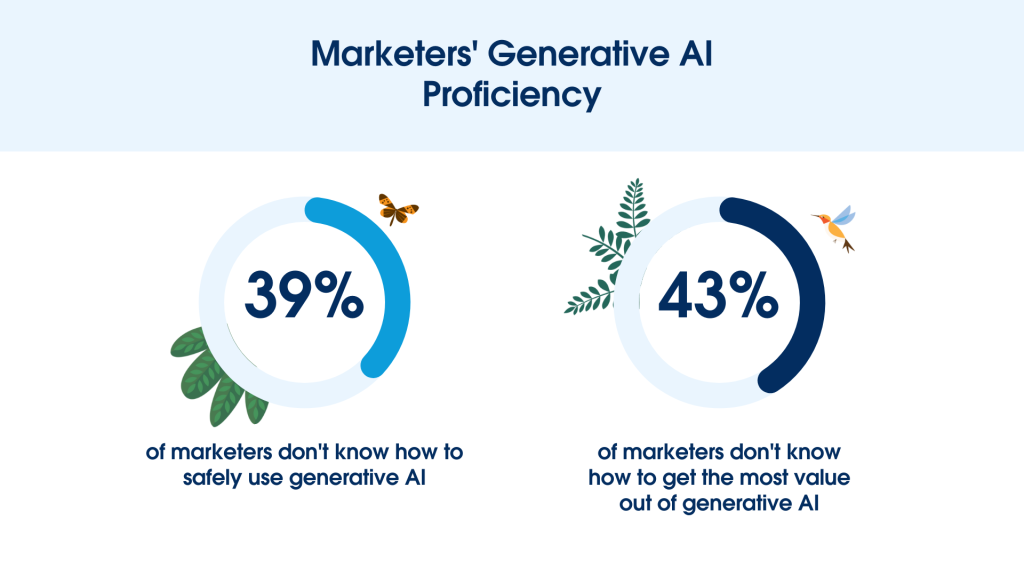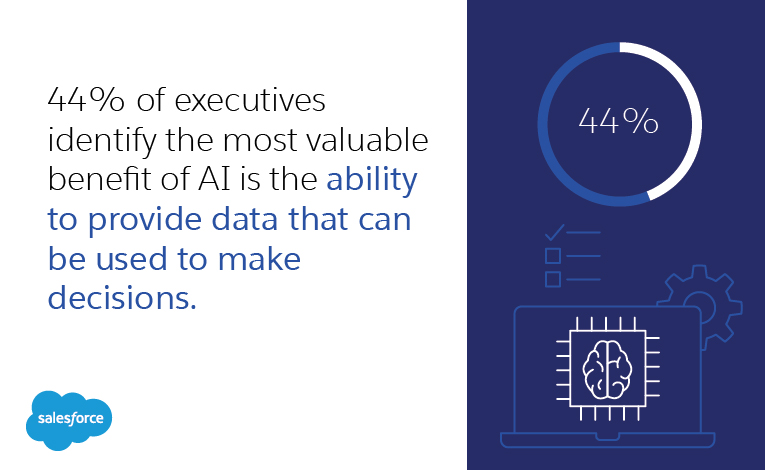Salesforce AI Cloud: A Generative AI CRM Platform for the Salesforce Economy
Today, Salesforce is celebrating the 'Salesforce AI Day." It has launched a new AI Cloud platform for CRM users, powered by generative AI features.
The quantum leap in the area of generative AI has introduced massive reforms in the areas of marketing, customer service, sales, virtual designing, and online messaging. Generative AI — its future is still hard to predict. But, for most business leaders, it is already reshaping the industry use cases with creativity at the center of its existence and further growth. Salesforce, the leading CRM software maker, is charging its way forward with new capabilities for enterprise users. It has built a fully-secured generative AI cloud platform to bolster its current position in business intelligence and automation. Labeled as AI Cloud built for the CRM market, Salesforce’s latest offering sets a new benchmark in generative AI for enterprises. The new wave of generative AI tools could break down all the barriers to communication and collaboration between a brand and its customers. The good thing is– Salesforce AI Cloud could be a strong catalyst in eliminating the dark side of generative AI’s use.
The Human-Computer interface, powered by generative AI and large language models (LLMs) could drive a seven percent growth in the global GDP, which is almost $7 trillion, in the next 10 years.
So, what exactly is Salesforce AI Cloud?
Salesforce AI Cloud is a CRM suite of generative AI features for a wide range of business applications and workflows. Salesforce’s AI platform, Einstein, is at the core of its newly launched AI Cloud, powering a trustworthy, real-time, open, and secured enterprise-ready generative AI for superior customer service and experiences. The purpose of Salesforce AI Cloud is to help every organization in expanding its productivity through a blend of new AI and automation capabilities across Sales, Marketing, Service, and Commerce.
Why Did Salesforce Bring in Generative AI to its CRM?
According to research, 43% of marketers don’t know how to tap generative AI for best results.

Salesforce, one of the world’s leading cloud CRM makers, leverages generative AI to ensure users are always prepared to pull in customer data in a secure and bias-free way. Salesforce AI Cloud, with the various GPTs and LLMs in sync, creates a viable ecosystem for generative AI applications. Marc Benioff, Chair and CEO of Salesforce highlighted the need to bring in generative AI inside the CRM. Marc said, “AI is reshaping our world and transforming business in ways we never imagined, and every company needs to become AI-first. AI Cloud, built on the #1 CRM, is the fastest and easiest way for our customers to unleash the incredible power of AI, with trust at the center driven by our new Einstein GPT Trust Layer. AI Cloud will unlock incredible innovation, productivity, and efficiency for every company.”
Here are the five most useful features of Salesforce AI Cloud that could disrupt the customer experiences and services industry.
Solid Gen AI Foundation for Cross-functional Teams
Salesforce AI Cloud supercharges different cross-functional operations by bringing together data analytics, automation, and AI-powered self-service. For instance, sales teams can use the generative AI features to create highly personalized emails based on customer’s needs and requirements. Marketers can deliver hyper-personalized content for customers across the entire buyer’s journey. Commerce teams can design a customer-centric conversational AI workflow using generative capabilities for chat, website, mobile, email, and social media. Likewise, developers can also use the Cloud AI features for auto-generating complex codes, fixing bugs, and troubleshooting issues in the project with better agility and higher accuracy.
So, the AI Cloud from Salesforce is best for multi-functional business groups that are focused on content personalization, marketing automation, and AI-led conversation management for better customer experience management.
Filling the Trust Gap
Business leaders are aware of the limitedness of security barriers involved with generative AI platforms. In some organizations, the use of generative AI tools such as ChatGPT is completely prohibited. The users are warned about the complex security issues that arise from using unknown features. These new features could become vulnerable surface attack points of data breach and malware injection.
Salesforce intends to overcome this problem with Einstein.
Generative AI development at Salesforce is infused with data security, privacy, and trust. In a survey related to the ethics of generative AI models, 73% of employees feared that embracing generative AI could introduce new types of risks in the system. 60% of users who plan to deploy generative AI within their enterprise are still clueless about the technology’s adherence to data privacy and security norms. Salesforce AI Cloud could solve these problems for enterprise users. The answer lies with the new Einstein GPT Trust Layer — an advanced data security framework that prevents LLMs from retaining and misusing sensitive customer data from the CRM or data lakes.

Shohreh Abedi, EVP, Chief Operations Technology Officer, and Member Experience at AAA – The Auto Club Group, said – “Our goal is to deliver more personalized member engagement, make our processes more efficient and cost-effective, and drive innovation across our team within a safe and trusted environment. We’re accelerating our digital transformation with Salesforce, and AI Cloud will help us implement AI across our entire business, including DevOps, support, sales, and underwriting.”
Integrating with Third-party LLMs
Implementing AI tools with superior features can help companies with higher levels of productivity. However, it could be a complex problem for users who have to choose between different LLMs and AI platforms to get their work done using automation and business analytics. Things could change for CRM users with Salesforce AI Cloud.
Salesforce CRM users can reap the benefits of using generative AI offerings available in the open ecosystem. The “right model for the right tasks” approach could save users time and cost, whilst maintaining a seamless integration with LLMs from OpenAI, AWS, Anthropic, Cohere, and others. All the prompts and responses are adjusted to meet the requirements of Salesforce customers. It is worth a mention here — OpenAI’s Enterprise API and the Einstein GPT Trust Layer would jointly deliver secured content moderation to keep the data retained inside the Salesforce Cloud infrastructure.
Interestingly, Salesforce will also open access to its Salesforce LLMs to fundamentally shift the pace of development and innovations for CRM users with faster code generation, analytics, and process automation. Currently, Salesforce’s family of LLMs includes CodeGen, CodeT5+, and CodeTF. These LLMs are already helping customers enhance their business agility and productivity with effective outcomes across multiple operations. Additionally, Salesforce has also developed generative AI tools such as Marketing GPT, Sales GPT, Service GPT, Commerce GPT, Slack GPT, and Einstein GPT to empower employees and organizations with trusted customer data-based content generation and knowledge-sharing platforms that can make faster, accurate decisions across a wide range of corporate scenarios.

“Embedding AI into our CRM has delivered huge operational efficiencies for our advisors and clients,” said Greg Beltzer, Head of Tech for RBC US Wealth Management. “We believe that this technology has the potential to transform the way businesses interact with their customers, deliver personalized experiences, and drive customer loyalty. We are excited to explore this opportunity with Salesforce and drive the next generation of personalized customer experiences.”
Prompt Builders (Without Hallucinations)
The generative AI responses are only as good as the prompts that derive the outcome. It could take months to master the art of generating responses from your business-centric prompts. For complex industries and business operations, this could take longer. But, are they effective?
The initial days of the modern generative AI era have revealed a big problem for users. It’s related to the artificial hallucinations in the responses that look like realistically accurate text but are scientifically wrong information. The problem of hallucinations could be a major pain point in industries that rely on accurate scientific data such as in healthcare, biomedical research, scientific reporting, and medical education. Other industries could also suffer due to hallucinations induced by natural language generators (NLGs) if the prompt is not regulated by trained machine learning algorithms.
Salesforce AI Cloud is bringing a simplified approach to hallucinations-free AI prompts. These prompts are ideal for use in Marketing, Sales, Service, and Commerce teams, where users may have to deal with millions of data points to generate context-rich responses. These optimized AI prompts are created by keeping the company’s brand and contextual messaging targets in mind.
Business-ready AI-based Data Analytics

Data analytics is the future of artificial intelligence. The faster the decision-making process using AI, the bigger would be the ROI from using CRMs enriched with AI capabilities. Salesforce provides deep learning, generative AI, and predictive intelligence — all these come together like a binding force for Salesforce users. The AI Cloud taps the enormous capabilities of the Data Cloud, MuleSoft automation, Einstein, Tableau Analytics, Slack, CRM, and Sales Cloud.
By bringing Salesforce AI Cloud to the center of business operations, organizations can overcome all the major challenges of using generative AI at an enterprise level. The recent advancements in generative AI innovations at Salesforce would have far-reaching implications for the SaaS industry and the customers it serves. Generative AI can transform so many areas of business in an organization with little training. Companies such as Salesforce empower customer-facing teams with powerful data analytics, AI, and automation that unify their first-party data with trusted contextual campaigns in a trustworthy and secured ecosystem.

Comments are closed.